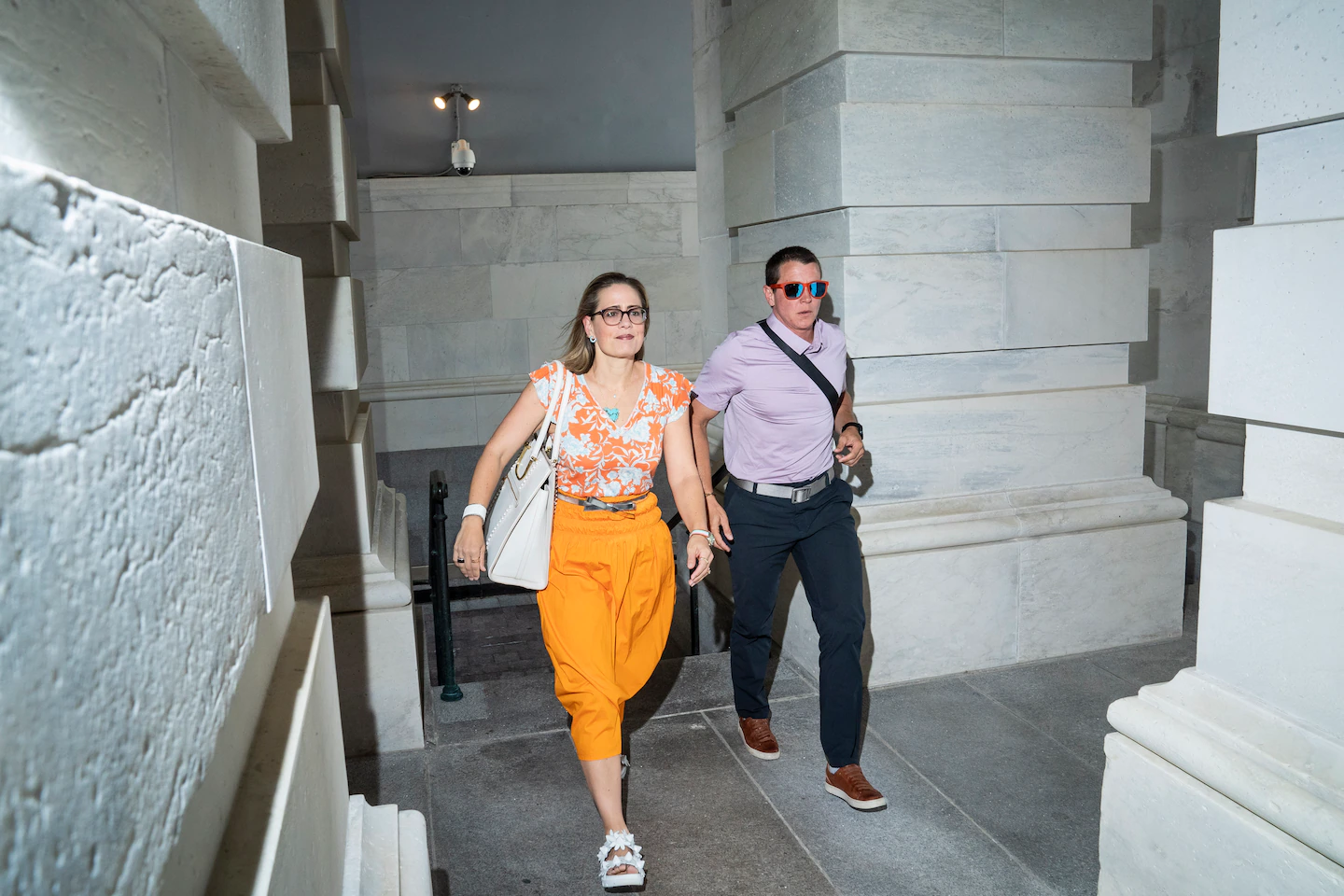[ad_1]
In a statement, Sinema said Democrats had “agreed to remove” a key tax policy targeting wealthy investors that aimed to address what is known as the “carried interest loophole.” She also said they had made additional changes to a second provision that aims to impose a new minimum tax on corporations that currently pay nothing to the U.S. government. The revisions would benefit manufacturers, according to two people familiar with the matter, who requested anonymity to describe the unreleased details.
As part of it, Democrats opted to seek a new 1 percent tax on corporate stock buybacks, a move that would make up at least some of the revenue that might have lost as a result of the changes, the two people familiar with the matter said. And they agreed to set aside new money at Sinema’s request to respond to climate issues including drought, according to the sources.
From here, Sinema said she would await a final review from the chamber’s parliamentarian — a critical step in the process that allows Democrats to move their spending bill — at which point she would “move forward.”
The changes in total appear to have helped Democratic leaders thread a narrow needle, satisfying Sinema while still preserving the thrust of the deal that Senate Majority Leader Charles E. Schumer (D-N.Y.) worked out with another moderate — Sen. Joe Manchin III (D-W.Va.) — just last week.
In recent days, Manchin had remained steadfast in his support for the deal he struck, the original version of which was expected to generate more than $768 billion in revenue over the next decade. Any change to assuage Sinema threatened to reduce the roughly $300 billion expected to be available for deficit reduction, a major issue for Manchin.
Democrats did not offer a new estimate for their revised tax policies late Thursday. In a statement, though, Schumer said he expected it would “receive the support of the entire Senate Democratic conference.” And he said the bill would still reduce the deficit by $300 billion.
Under the new plan, Democrats now seek to impose a new tax on the money companies spend to purchase back their own stock, according to a Democratic aide familiar with the matter who requested anonymity to describe the measure. Party lawmakers long have taken issue with such practices, arguing they benefit large firms’ stock prices at the expense of workers and the economy at large.
In adding the new proposal, Democrats also appeared to rethink their initial plans to impose a minimum 15 percent tax on corporations. The exact details of the change is not clear, but Sinema said in a statement her agreement would “protect advanced manufacturing.”
And Democrats removed their proposal to target the taxes that apply to private equity and hedge fund managers, an attempt to close what is known as the “carried interest loophole.”
Initially, the bill sought to change the way these investors are taxed on the fees their clients pay them, subjecting them to higher rates. But they scrapped their original plans in response to Sinema, who said she would work with Sen. Mark R. Warner (D-Va.) to address the issue while “protecting investments in America’s economy” and close “the most egregious loopholes that some abuse to avoid paying taxes.”
[ad_2]
Source link

